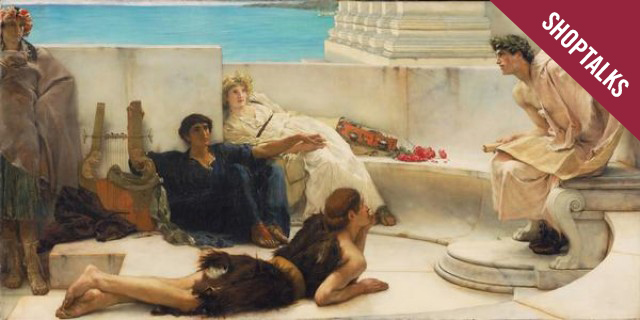Adam Foley – Homer’s Winged Words and Humanist Latinity

The period known as the Italian Renaissance (1350–1500) witnessed the first Latin translations of Homer that have come down to us today. Those who translated Homer were humanists, and they did so in a style of Latin that was reminiscent of ancient Roman oratory. Their translations often read more like an oration by Cicero than ancient epic. This is a very strange thing to do with a text that was produced by oral methods of composition-in-performance at the dawn of Greek civilization. And it is precisely for this reason that humanist translations of Homer have been almost universally denounced as a “failure.” In this talk Adam Foley discusses why humanists translated Homer the way they did. The Iliad and Odyssey, it turns out, were the only texts translated in the Renaissance that were the product of a primary oral culture. For this reason he argues that Homer, more than any other ancient author, is in a privileged position to inform us about the peculiar features of the humanist movement. Though they were only dimly aware of the oral and performative nature of the composition and transmission of the Homeric epos, their translations were nevertheless an unconscious response to the product of a primary oral culture. On the basis of this insight, he proposes to modify the current theory about the origins of the literary culture we have come to know as “humanism.”
Foley is the Donald and Maria Cox Pre-Doctoral Rome Prize Fellow in Renaissance and Early Modern Studies at the American Academy in Rome and PhD candidate in the Department of History at the University of Notre Dame.